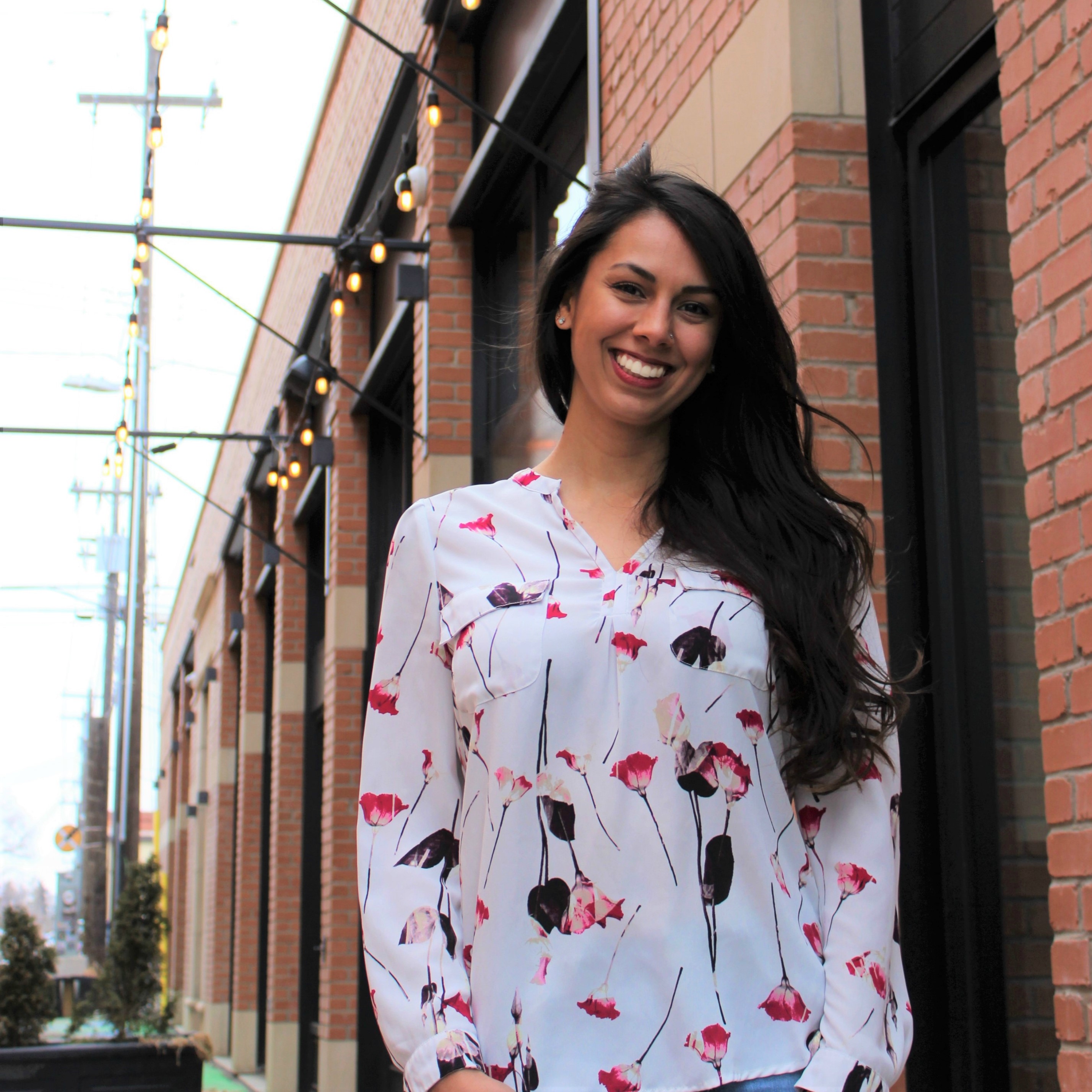Student Spotlight: Rachel Buehl
Allie Voisin - 27 November 2020

Faculty of Nursing student Rachel Buehl has put her stamp on a new science literacy course helping people critically evaluate claims of scientific legitimacy. Photo supplied.
In a world of endless information, fake news, and more sources than ever before—good, bad, and everything in between—fourth-year after degree Faculty of Nursing student Rachel Buehl has put her stamp on a new science literacy course helping people critically evaluate claims of scientific legitimacy.
Buehl—who has always been passionate about healthcare and science—says her academic aspirations stem back to her personal life experiences. She credits her interest in health sciences to the resilient soldiers she came to know through growing up in a military household which inspired her to attain a Bachelor’s Degree in Psychology from the University of Alberta followed by a Bachelor of Science in Nursing (BScN) degree.
“In my own health challenges, I have seen firsthand the incredible value of nurses. However, I have also witnessed barriers in the healthcare system to patient-centred care. As a future RN, I hope to help facilitate interprofessional collaboration and patient advocacy,” explained Buehl, a fourth-year after degree nursing student at the Faculty of Nursing, University of Alberta.
Below, Buehl shares her involvement in the development of this topical new course, her passion for nursing, and her plans for the future.
Can you explain more in-depth what science literacy is?
Scientific literacy is the capacity to critically evaluate and weigh the scientific evidence that exists for a given claim. As the scientific process is self-revising, we are constantly taking in new evidence. This course encourages students to look beyond the headlines that provide bites of information, to evaluate the source of these claims. Through topics such as sports, health, climate change etc., we cover fundamental concepts that they could apply when hearing of studies through social media. For instance, students will develop critical thinking tools to consider limitations in a research design, and apply concepts such as falsifiability, reliability, and validity.
You are also an educational resource developer, how did you land in this role?
I have a Bachelor’s Degree in Psychology from the UofA. Throughout my first degree, I sought any opportunity I could get my hands on to participate in research. A few Professors fostered my education outside of the classroom by allowing me to volunteer on their research units. I spent a summer as a Student Research Assistant in the Neurology Department and even took a year off from school to move to Yellowknife to work at the Military Family Resource Centre. I first met
Dr. Claire Scavuzzo in her Hormones and Behaviour and Psychopharmacology courses. I quickly learned that we shared interests in topics such as hormones, pseudoscience, and science literacy. It was a great fit when later the opportunity presented itself to join her team!
How did you help develop the UAlberta Science Literacy Course?
I had the pleasure of holding a few different positions while working alongside many other wonderful people who make up the Science Literacy Team. We all came from different fields but shared a passion for advocating for Science Literacy. I believe this is reflected by the many concepts we cover in this course. Initially, I started as the Open Educational Resource Navigator to source creative commons resources for the project. I progressed into the role of an Educational Resource Developer, in which I worked directly alongside Dr. Scavuzzo to write and develop the course content. I also co-host the educational videos shown throughout the course.
This course is very topical during these extraordinary times. Why is science literacy more important now than ever?
I would argue that science literacy has always been important. As evident in the course, pseudoscience is far-reaching and extends beyond the present times. This course is a toolbox to help students engage in the process of science and arm themselves against misinformation. Not everyone who makes a post on the internet is objective. In a time when we are inundated with information, it can be difficult to set aside opinions and emotions. In this course, we learn about uncertainty and how the scientific method is designed to protect us from our bias. Students will gain insight into how scientific findings are disseminated and consider the credibility of these sources. We encourage students to apply these critical thinking skills beyond the scope of this course to their everyday lives.
What do you love about nursing?
From the perspective of science, I am passionate about evidence-based research and enjoy that nursing offers lifelong learning. It is a field in which my critical thinking will continue to be challenged. Nurses also have the opportunity to build rapport and provide meaningful support to patients during difficult times. Through patient education, nurses support health literacy. Through clinical assessment and intervention, nurses collaborate to support treatment plans. But above all, I believe relational care is integral to nursing — I will never forget the nurse who once offered her hand for me to hold.
What are your academic plans for the future?
As a Registered Nurse, I am hoping to utilize both of my degrees to specialize in a neurosciences field. I am particularly interested in neurosurgery, the OR, and the Neuro ICU.
The Science Literacy Course is a free open online course that includes videos, guest lectures, interactive learning objects and quizzes. There are no prerequisites; students can complete the five modules at their own pace. Are you interested in improving your scientific literacy skills? Learn more and sign up for free or upgrade to get certified in science literacy.